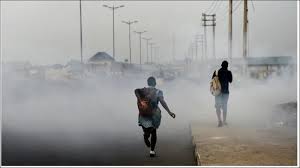BY TUYISHIME Eric
Rwanda, a small but densely populated nation in East Africa, is grappling with the escalating impacts of climate change. From unpredictable rainfall patterns and severe droughts to intense floods and landslides, the effects of global warming are increasingly visible in the country’s daily life and economy.
In response, the Rwandan government has adopted a series of ambitious measures to combat climate change and promote sustainable development. The country’s Vision 2050 strategy emphasizes a green growth agenda, aiming to transform Rwanda into a climate-resilient, low-carbon economy by mid-century. The government has committed to reducing greenhouse gas emissions by 38% by 2030, through initiatives such as expanding renewable energy, promoting sustainable agriculture, and restoring degraded ecosystems.
One of the key strategies involves the restoration of the country’s degraded landscapes through the “Green Rwanda Initiative,” which aims to plant over 30 million trees by 2025. Additionally, Rwanda is investing in renewable energy sources like solar and hydropower to reduce its reliance on fossil fuels. Efforts are also underway to improve water management systems and promote climate-smart agricultural practices, to ensure food security despite changing weather patterns.
However, the path to climate resilience is fraught with challenges. Limited financial resources, inadequate infrastructure, and a lack of public awareness pose significant hurdles. While Rwanda is making strides in policy and action, the need for increased international support and collaboration remains crucial.
The government, alongside civil society and international partners, continues to push for innovative solutions and community-driven approaches to mitigate the effects of climate change, emphasizing that global cooperation is essential to safeguarding the country’s future.





